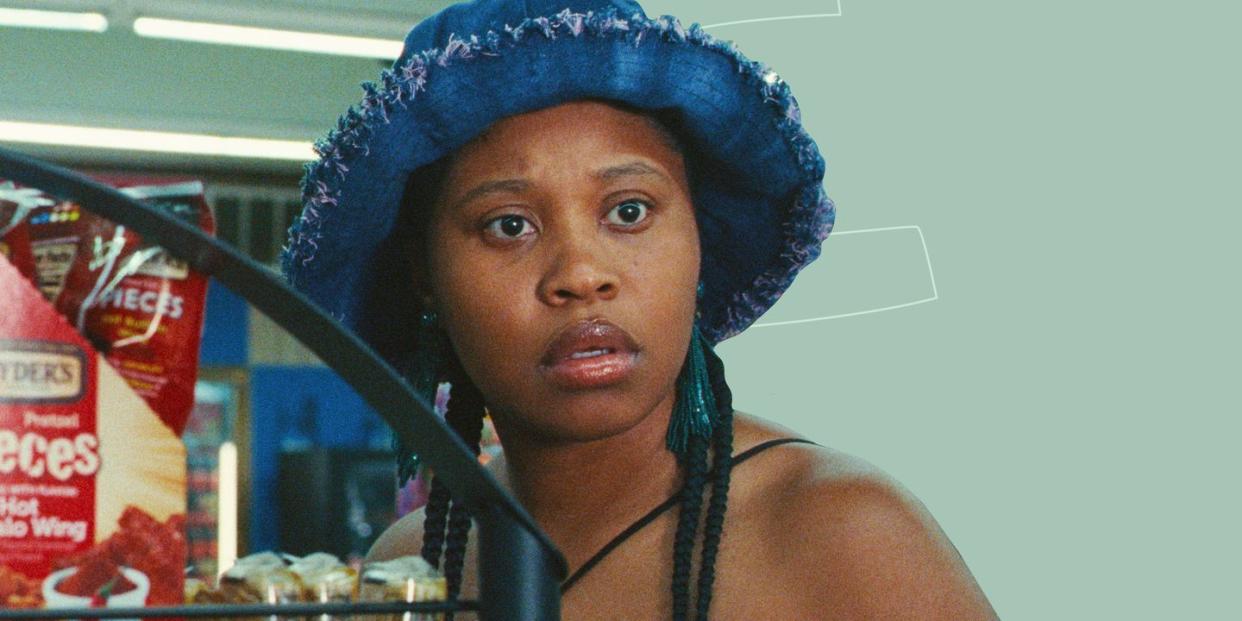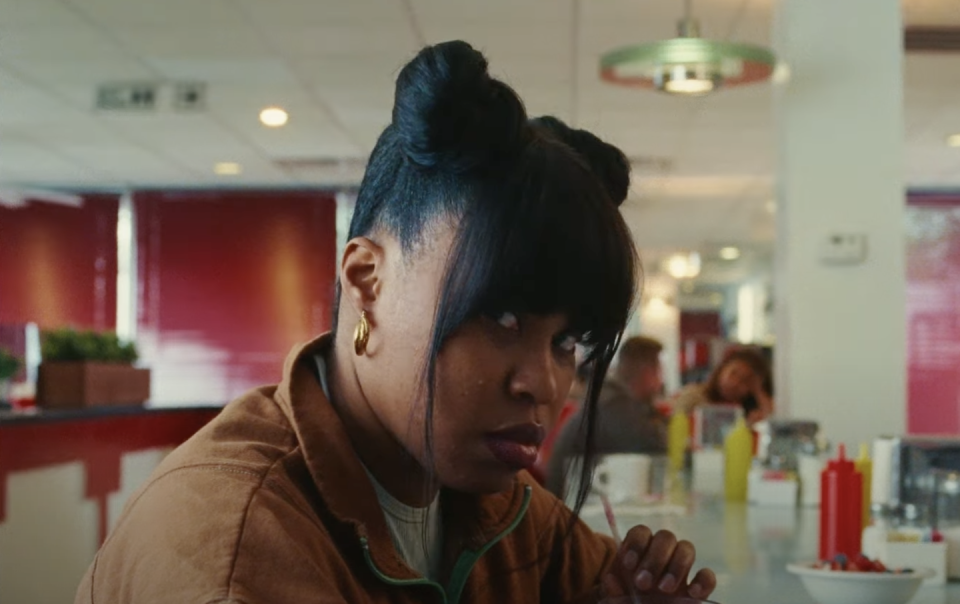'Swarm' Knows the Paradox of Fandom

Swarm is like the shag haircut in reverse—the party is in the front, and business blossoms in the back. Prime Video's newest series is transparently fun and quirky, presenting the gripping saga of Dre, a twenty-something Houston native, whose childlike obsession with Ni'Jah, a Beyoncé-like pop star, is brass-tacks brutal.
Not until the penultimate episode of this Donald Glover-produced thriller, which debuts today (and raises the stakes on his groundbreaking series Atlanta's surreality), do we witness a solemn interrogation, in the manner of run-of-the-mill whodunnits, of the horrors inflicted at the service of fandom. That said, virtually all seven episodes are like one outrageous orgy of scathing reads informed by scintillating suspense. It's like Zola crossed with Kill Bill—if The Bride got intel on her opponents from bloodthirsty sycophants.
Though nothing about the series feels conventional, attacks against opinionated types by staunch loyalists are all too common nowadays. If your generation's letter matches the number on Kawhi Leonard's jersey, you know that "Stanning" persists in our culture. From the "Leave Britney Alone!" crier to the ever-zealous Barbz, proselytizers are as prevalent as crowdfunding for The Renaissance Tour. At the same time, the sadism displayed on our socials can slip through to real life, like some sneaky SVU suspect. Haunted by Ni’Jah, Dre loses touch with reality: her loyalty leads her down a rage-filled path, wherein she targets Ni'Jah haters, appearing at their dwellings with blunt words (and instruments!) in her arsenal.
Maybe her actual deeds aren't premeditated. But Dre's batty, us-against-the-world rancor certainly is. (In one scene, she reads a man's petty tweets about Ni’Jah—who is everything—back to him as he pleads on the floor.) Kudos to showrunner Janine Nabers for hauntingly toeing the line between obsession and demonstrable anger. Nabers lets the bad air surrounding Dre, played by a fierce Dominique Fishback, seep into the bright meatspace of Houston, Texas, circa 2016. There, Ni'Jah’s number-one fan and her buddies work a dead-end gig at the local mall. Dre splits the rent with her sister Marissa (played tenderly by Chloe Bailey) and runs up credit cards to purchase tickets for Ni’Jah concerts. But Marissa suffers an inescapable bout of depression while Dre is at—wait for it—a Ni’Jah festival.
Dre appears to blame herself for not having Marissa's back. By the end of Episode One, she's at the store, squeezing the broken glass from a dropped Coke bottle in her palm and staring baldly while the blood gushes. Dre becomes increasingly antisocial—label her a ratchet Raskolnikov. Instead of hibernating, like Dostoevsky's sadistic antihero, Dre hangs out at food courts, letting her bad aura ooze throughout that mediated milieu. She howls like a banshee when out for blood, and everything about her persona is ravenous. After every blood-curdling deed, she consumes junk food. (Next to Dre, those sergeants slurping takeout beside corpses in old police procedurals seem like milquetoast rookies.) Just as the flipped coin in No Country for Old Men foreshadowed a brutal murder, a swallowed sandwich in Swarm foreshadows an unspeakable misdeed. There's barely any accountability. But Fishback's native charms make Dre's ambiance seem coolly rebellious. She's blithely blank—and her clapbacks come via a dead-eyed stare.
How did Dre get like this? Can celebrity obsession derange you to the point where you become damn near sociopathic? Swarm is way too clever to suggest that. The disclaimer at the beginning of each episode announces that "this is not a work of fiction" and "any similarity to actual persons, living or dead, or actual events, is intentional." It feels like a knowing nod to the "disclaimer" we see 79 pages into David Foster Wallace's posthumous novel The Pale King, which proclaims that the book is entirely factual. While early on, we find out that Dre is adopted, there's little else we know about her. Whatever rage she harbors is covered with a smile when she (like most of us) logs onto social media first thing in the morning. In other words, Dre woke up like this. By sharing the same inanimate object we peer into, we get her—even if we recoil at her fucked-up mentality.
Swarm gives us enough backstory to decipher Dre's decline. Here, boredom (as it was in The Pale King) is the boogie monster. The show's characters wearily drone about Spiritual Awakenings and Moments of Transcendence as if they were preset moods in their Apple Watches. Thankfully, Swarm points out the paradoxes of fandom. It underscores how people express their individuality through their fealty to pop stars, surrounding themselves with others who share the same opinions, epitomizing the very essence of groupthink.

But the show's creators don't let them off the hook. Far from it. Glover, who's addressed the disturbing allure of meme culture (on the Atlanta episode, "Crank Dat Killer"), was probably inspired by the minor outrages that appear on our timelines 24/7. The Hive attacks anyone with a dissenting word against their Queen. It's not far-fetched to assume that the sprawling nest Dre envisions in Swarm references her IRL equals—always prepared to make even the most thick-skinned types invest in anti-bullying software. Our modern Hatfields and McCoys don't brandish muskets; they tote debilitating tweets.
Anyway, life is all loose ends. But everything on the Internet feels as precise and matter-of-fact as a hair-trigger dismissal (or not-so-thinly-veiled threat). I totally dug this morbid take on the classic Twitter binary: "Classic or Trash?" Like the Internet, Swarm is a pugilistic funhouse that makes the whole specter of offed individuality—in the name of social media addiction—seem as thrilling, if not unsettling, as a joyride.
You Might Also Like

